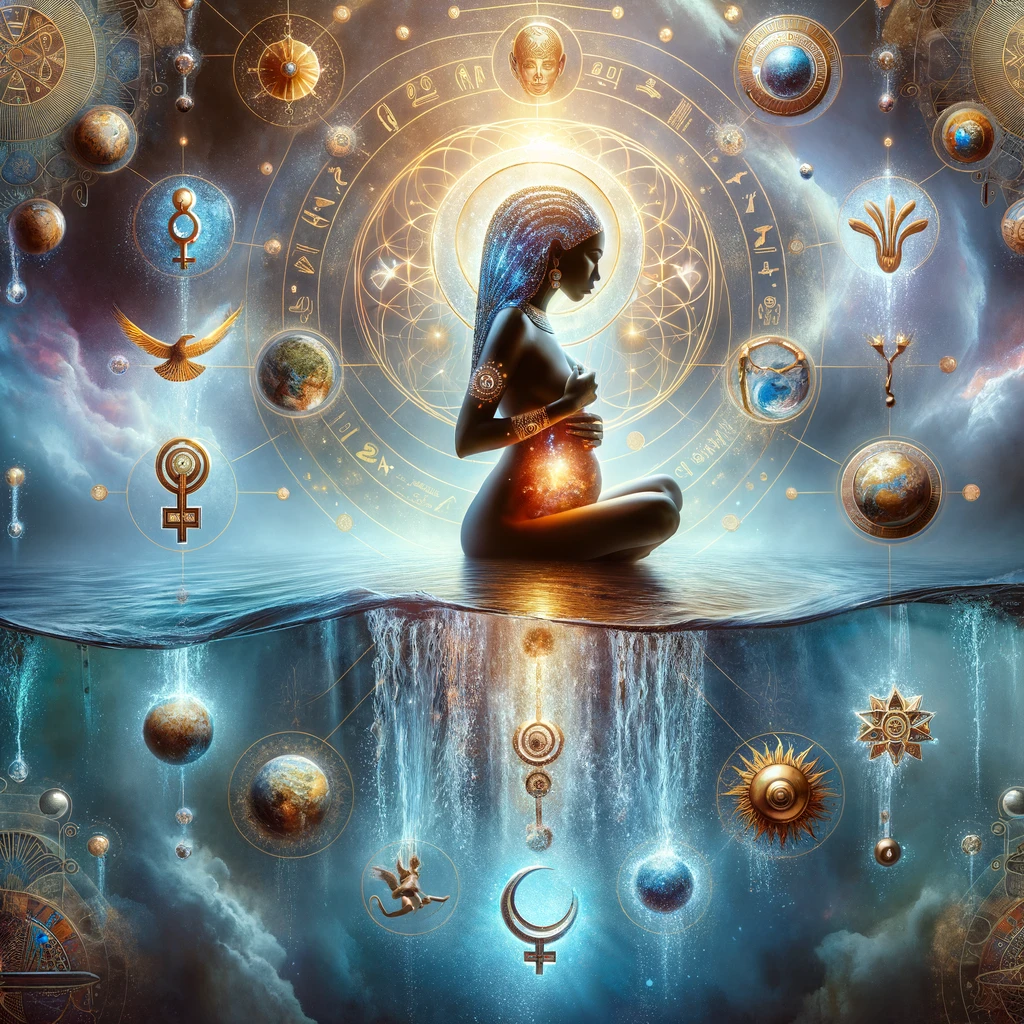In recent discourse, the statement “The Black woman is God” has garnered attention for its provocative nature and the underlying historical and biological justifications. While the symbolic gesture of deifying and celebrating the Black woman for her role in the birth of humanity is a powerful statement of empowerment and recognition, it is crucial to delve deeper into the origins of life itself to gain a comprehensive understanding of this complex topic.

Before the emergence of any living being, water stood as the foundational element of creation. The notion that humans could not have predated water is a compelling argument, considering the biological necessity of water for the sustenance and reproduction of all living organisms. The complexity of life’s origins necessitate a holistic understanding that transcends individual identities or attributions of divine status.
The womb, a symbol of fertility and nurturing, parallels the life-giving properties of water, hinting at a deeper cosmic connection between the feminine essence and the primordial substance of water. However, the birthing process occurring within a water-filled womb ultimately underscores the preeminence of water in the creation of life. This prompts a deeper contemplation on the origin of water and the mysterious forces that brought forth this essential element of life.
While the discourse on the divine role of Black women in the creation of humanity is profound, the question of who created water remains enigmatic. The generic answer is “God created water”, but the mysterious identity of The Creator eludes definitive explanation. Alas, the question of whether God is a woman remains unanswered in the “modern” worldview.
In the rich tapestry of Ancient Egyptian mythology, the Goddess Nun stands out as a powerful symbol of the primordial waters from which all life emerged. Depicted as the mother of Ra, the Sun God, Nun’s significance goes beyond mere maternal imagery. Some interpretations suggest that if Nun is the mother of a deity as prominent as Ra, then we can contemplate the notion of God being portrayed as a female. This offers a unique lens through which to explore the idea of the black woman being God.
In a broader sense, the story of Nun and Ra invites us to reflect on the multifaceted nature of deity and the various ways in which different cultures have articulated the divine. By contemplating what the ancestors said, we are encouraged to delve deeper into the complexities of divine symbolism and the ways in which different cultures have conceptualized divinity. This perspective also prompts us to question preconceived notions about gender in religious narratives and appreciate the diversity of interpretations that exist within ancient myths.
The discussion of “The Black Woman is God” offers a thought-provoking examination of creation, highlighting the integral role of water as the primordial element of life. Acknowledging the critical components of life allows for an appreciation of the interconnectedness of all living beings and the mysteries that lie beyond human comprehension.
The unanswered question of water’s creator invites us to ponder the profound mysteries of existence and the enigmatic forces that govern the universe. By doing “Sankofa”, we allow ourselves to be inspired by ancestral teachings and mythology, which will ultimately help guide us in our quest for truth.